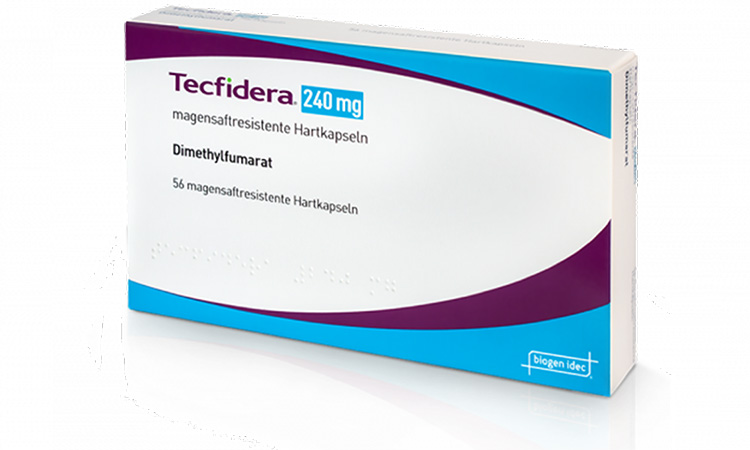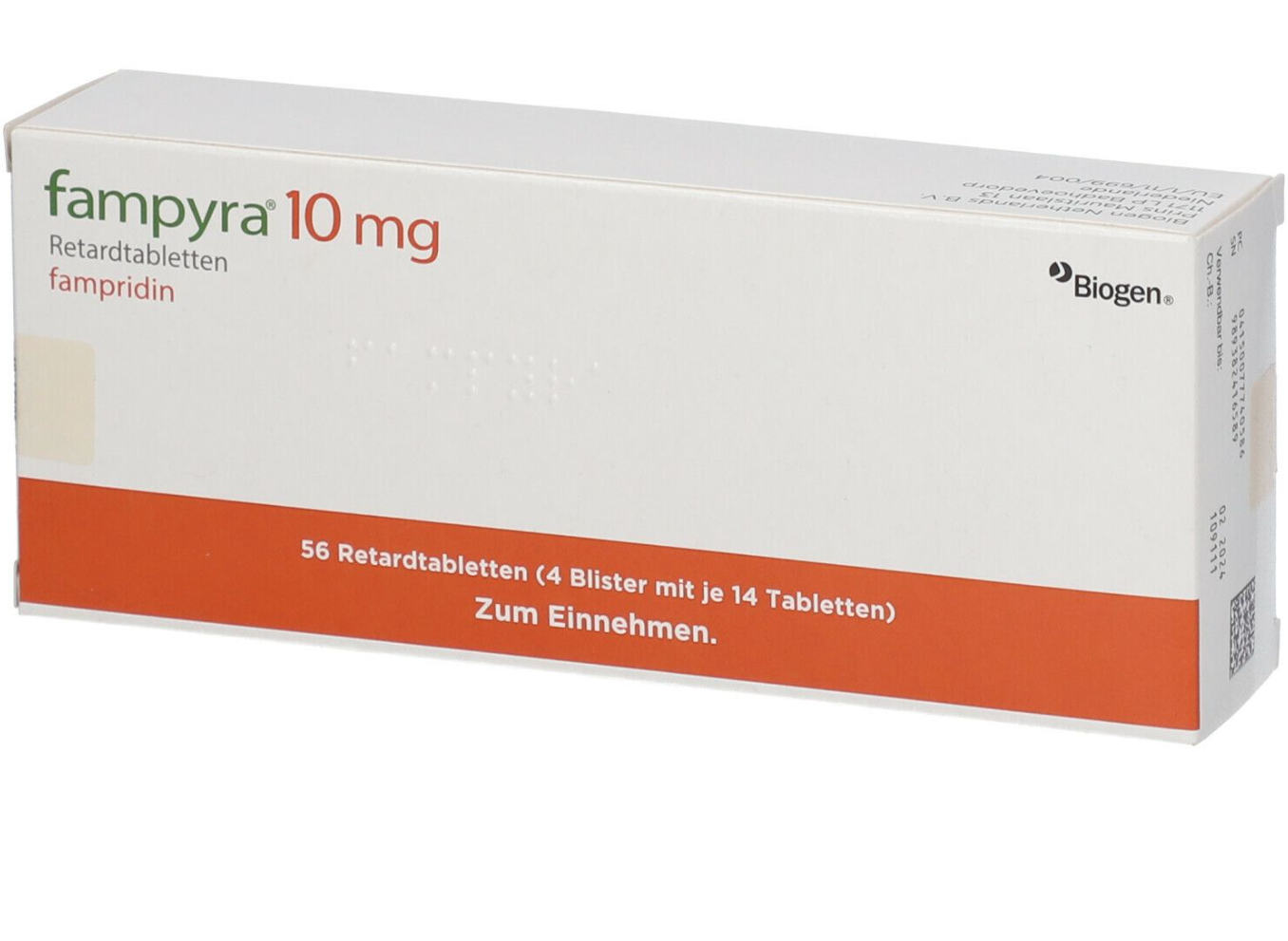Tecfidera (dimethyl fumarate) vs Fampyra (fampridine)
Tecfidera (dimethyl fumarate) vs Fampyra (fampridine)
Tecfidera (dimethyl fumarate) is an oral medication approved for the treatment of relapsing forms of multiple sclerosis (MS), working by modulating the immune response to protect against damage to the nervous system. Fampyra (fampridine), on the other hand, is a potassium channel blocker that is used to improve walking in patients with MS by increasing nerve signal conduction in damaged nerves. When deciding between the two, it is important to consider that Tecfidera is aimed at managing the overall course of the disease, while Fampyra is specifically targeted at improving a particular symptom, which is walking speed.
Difference between Tecfidera and Fampyra
| Metric | Tecfidera (dimethyl fumarate) | Fampyra (fampridine) |
|---|---|---|
| Generic name | Dimethyl fumarate | Fampridine |
| Indications | Multiple sclerosis | Improvement of walking in patients with multiple sclerosis |
| Mechanism of action | Activates the Nrf2 pathway, which provides a protective response to oxidative stress in the central nervous system | Blocks potassium channels on the surface of nerve fibers, which can improve nerve signal conduction |
| Brand names | Tecfidera | Fampyra |
| Administrative route | Oral | Oral |
| Side effects | Flushing, gastrointestinal issues, reduced white blood cell count | Urinary tract infection, insomnia, dizziness, headache, nausea, weakness, back pain |
| Contraindications | Known hypersensitivity to dimethyl fumarate or any of the excipients | History of seizures, moderate to severe renal impairment |
| Drug class | Immunomodulatory agent | Potassium channel blocker |
| Manufacturer | Biogen | Biogen (marketed as Fampyra in some countries), Acorda Therapeutics (marketed as Ampyra in the U.S.) |
Efficacy
Tecfidera (Dimethyl Fumarate) for Multiple Sclerosis
Tecfidera (dimethyl fumarate) is an oral medication approved by the Food and Drug Administration (FDA) for the treatment of relapsing forms of multiple sclerosis (MS), which include clinically isolated syndrome, relapsing-remitting disease, and active secondary progressive disease. The efficacy of Tecfidera in treating MS has been demonstrated in a number of clinical trials. These studies have shown that Tecfidera can reduce the rate of relapses, slow the progression of disability, and decrease the number of MS lesions as detected by MRI scans. The exact mechanism of action of dimethyl fumarate in MS is not fully understood, but it is thought to modulate the immune response and exert neuroprotective effects.
In pivotal Phase III clinical trials, such as the DEFINE and CONFIRM studies, Tecfidera significantly reduced the annual relapse rate by approximately 50% compared to placebo. Additionally, it was shown to reduce the risk of progression of disability by up to 38% compared to placebo. These trials also reported a reduction in the number of new or enlarging T2-hyperintense lesions and gadolinium-enhancing lesions on MRI, which are indicative of disease activity in MS patients.
Fampyra (Fampridine) for Multiple Sclerosis
Fampyra (fampridine), known as Ampyra in the United States, is another medication used in the management of MS. It is specifically approved for the improvement of walking in patients with MS. This was demonstrated by an increase in walking speed in clinical trials. Fampridine is a potassium channel blocker that is thought to improve nerve signal conduction in damaged nerves, which can be beneficial for some individuals with MS.
The efficacy of Fampyra in improving walking speed in MS patients was shown in two Phase III clinical trials. These trials measured the walking speed of participants on a timed 25-foot walk (T25-FW). The results indicated that a significantly greater proportion of patients taking Fampyra had a consistent improvement in their walking speed compared to those taking a placebo. It is important to note that the response to Fampyra is variable, and not all patients with MS may experience an improvement in walking ability. Additionally, the benefits of Fampyra on other aspects of MS, such as relapse rate or disability progression, have not been established.
Regulatory Agency Approvals
Tecfidera
-
European Medical Agency (EMA), European Union

-
Food and Drug Administration (FDA), USA

-
Health Canada

-
Therapeutic Goods Administration (TGA), Australia

-
Medsafe (NZ)

Fampyra
-
European Medical Agency (EMA), European Union

-
Food and Drug Administration (FDA), USA

-
Health Canada

-
Therapeutic Goods Administration (TGA), Australia

-
Medsafe (NZ)

Access Tecfidera or Fampyra today
If Tecfidera or Fampyra are not approved or available in your country (e.g. due to supply issues), you can access them via Everyone.org.
How it works

Make an enquiry
Choose the medicine you want to buy, answer a couple of questions, and upload your prescription to speed things up. We’ll get back to you within 24 hours.


Make an enquiry
Choose the medicine you want to buy, answer a couple of questions, and upload your prescription to speed things up. We’ll get back to you within 24 hours.


Breeze through the paperwork
We'll guide you through the required documents for importing unapproved medicine, ensuring you have all the necessary information.


Get a personalized quote
We’ll prepare a quote for you, including medicine costs and any shipping, administrative, or import fees that may apply.


Receive your medicine
Accept the quote and we’ll handle the rest - sourcing and safely delivering your medicine.

Some text on this page has been automatically generated. Speak to your physician before you start a new treatment or medication.
Let's talk
If you have any questions, call us or send us a message through WhatsApp or email:
Contact us




